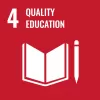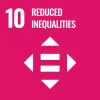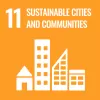Poland
participants
As Poland is quite a homogenous country in terms of migration, the presence of people from different backgrounds it sometimes leads to intercultural misunderstandings or even discriminatory situations, when citizens are not equipped with basic intercultural competences. Our university is a place where those two worlds, local and international, collide. It is a place where many local students have their 1st encounter with peers from different countries and cultures. It is also a first place where incoming exchange students are introduced to the local community. The goal of the workshop was to teach participants what cultures stand for, create awareness of different forms of (intercultural) discrimination and learn tools to address intercultural discrimination and racism effectively. This new gathered knowledge and competences will help them to navigate their exchange experience in Poland.
During a 5h workshop we had 3 sessions (slots) tackling the idea of a culture, basics of racism and discrimination, their origins, types and ways recognise and tackle them. The workshop was held by 2 facilitators –one ESN volunteer that participated in SIYE training in Bosnia and one local pedagogics student (also an ESNer). First session was focused on the topic of culture(s). Participants brainstormed first on their own culture and what makes it so special, as well as learned to become more aware of the differences between cultures, their coexistence and potential conflicts/misunderstanding based on them. This part of the workshop was held in a more informal style in order for participants to feel more comfortable and prepared for the second part which brought more formal content. After coffee break we followed with the second part – stereotypes and basics of discrimination. Following up on first session, participants learned the definitions of discrimination/prejudice/stereotype/racism and mapped their examples. They also had space to share their personal experience or any discriminatory situations they’ve witnessed before through guided meditation. This part was more theoretical and intensive that’s why it was followed by free lunch for all participants. We observed that even during lunch break, partcipants held informal discussions on the topic. After lunch break we went back for the third (and last) session. This session was again held in a more informal atmosphere in order to process the knowledge in active way. We organised a stereotype game on the base of speed-friending where participants were put in (rotating) pairs and shared stereotypes or assumptions about their peer country/culture. This way they could check their "knowledge" and, on the other hand, debunk some cultural stereotypes. At the end participants left small notes on the flipchart "I wish people knew this about my culture..." to educate peers on the reality of their countries.
Before the event we had 2 campaigns online rearding cultures and stereotypes. This was organised on Instagram account in a form of IG story quizzes that were followed by the promotion of the workshop itself. After the event we shared a post on our IG account to summarise the event.
When it comes to the methods, we used a variety of activities, mostly game-based to make the whole event more fun and attractive. We made participants to work in both groups, individually and in plenary. We used some pre-prepaired materials (e.g. definitions cut in pieces), flipcharts and post-its.
We reached 20 international students, 1 of them was actually a student of another university in the city, which proves that our campaign online was successful. We think that we managed to equip partcipants in basic intercultural competences and knowledge on discrimination and racism. This will for sure help them survive their exchange experience.



This activity is part of the project:
Developing Youth Voices